|
In this Let People Prosper episode, I discuss how property taxes continue to skyrocket in Texas and highlight options that would provide property tax relief. The key to any long-term tax relief is to limit government spending so that the burden of government can be reduced.
The result of taxing something is that you will get less of it. That's simple, correct? But the details of how to best collect taxpayer dollars to fund limited roles for government gets complicated. I try to break this down simply at the video above. According to the Texas Comptroller, property taxes and sales taxes are both regressive. Any time you have a flat tax rate, higher income people will pay a lower share of their income on taxes than lower income people. But the costs of property taxes are substantial, with businesses and individuals each paying about half for school M&O property taxes. Sales taxes, on the other hand, allow people the freedom to decide how to spend their money, don not have to tax real estate (capital formation and accumulation--keys to wealth of nations), and are transparent. Individuals pay about 60% of sales taxes collected while businesses submit about 40%, but we know that businesses don't ultimately pay taxes because they just pass those costs along to consumers (us) in the form of higher prices, lower wages, and fewer jobs available over time. As noted in previous episodes, I have long supported the elimination of property taxes in Texas. There are multiple ways to do so by possibly swapping them (sales tax rates are lower now because of expanded economic growth since these rates were calculated) with a reformed sales tax and/or buying them down permanently over time. The key is to limit government spending so that the burden of government can be reduced. We know that sin taxes (e.g. carbon tax or cigarette tax) or tariffs are poor forms of taxation. Income taxes are also a terrible form of taxation. Check out the table below that provides information for the 9 states without a personal income tax and the 9 states with the highest personal income tax rates. Those states without a personal income tax blow the others out of the water regarding multiple economic indicators. Of course, the key is limiting spending. Let's move to a tax system with just a sales tax for more economic prosperity, which eliminating the school M&O property tax would be a great start.
0 Comments
U.S.-Mexico Deal & Testimonies on Occupational Licensing and Budget Transparency: LPP EP 348/28/2018 In this #LetPeopleProsper episode, I discuss my last two very busy days.
With the proposed U.S.-Mexico trade deal yesterday, I was on multiple radio stations today across the nation talking about the costs and benefits of the deal and the implications for Americans. I'm still waiting to see all of the details and am lukewarm about it at this point because of the trade barriers imposed on the auto sector that will lead to higher auto prices for consumers and higher transportation prices for many businesses. However, I'm optimistic that much of NAFTA remained intact, e-commerce provisions were included to modernize the agreement, and the contract is for 16 years instead of the 5 years the Trump administration suggested. Here's my recent commentary at The Hill on this issue. I testified today before the Texas Senate Business & Commerce on deregulating occupational licensing, which is the most onerous form of labor market regulation (here's my testimony). I discussed the high costs of these and made recommendations on taking a broad look at eliminating many of them or reducing their requirements along with moving towards having employers complete a registration or certification with the state government or a private association to signal that they are able to do the job, which signaling is about all many of these licenses are good for. I'll have a paper published on this soon with Dr. Ed Timmons of St. Francis University. I also testified today before the Texas Senate Administration on the benefits of program-based budgeting and the need for zero-based budgeting. I explain this in detail in the episode, but basically our state budget today is organized by strategy that lacks transparency and makes it difficult to find granular data in the budget, especially to weed out unnecessary programs. By moving to a program-based budget that's been used in Texas before, this granular data would be available to add transparency for taxpayers and legislators while making it easier to start each program at zero and make decisions whether it should be included--otherwise known as zero-based budgeting. Please watch the video for more. Don't forget to subscribe to my YouTube channel at "Vance Ginn Economics" and continue to share this with your friends and family. Thank you! #LetPeopleProsper In this episode, I am interviewed by Liz Wheeler of One America News Network on the costs and benefits of the proposed trade deal between the U.S. and Mexico. While consumers will likely pay higher prices for autos, there are benefits of the deal as well. It's important that NAFTA continue as it supports abundant prosperity, especially in Texas.
Here's my press release today and recent research on how people prosper from trade, including NAFTA. A big part of the benefit of today's proposed bilateral trade deal is that it reduces the foreign trade uncertainty holding back economic activity. While tariffs may have contributed to a faster agreement, tariffs are nothing more than a tax and shouldn't be used in such a manner unless willing to increase taxes and raise more revenue to expand government, which isn't something I'm willing to do nor should Americans as it makes people poor. Hopefully there will be lower trade barriers overall when the agreement is finalized between the U.S., Mexico, and Canada. If not, Texans and all Americans will lose in the process. #LetPeopleProsper In this Let People Prosper episode, I discuss today's enactment by the Trump administration of $16 billion more in tariffs on Chinese products by the Trump administration along with my recent presentation before the U.S.-Mexico Chamber of Commerce in Houston on the importance of institutions along with the benefits of international trade. While there are certainly acute costs for specific people in trade activity with people in other countries, the benefits are widely dispersed. This is why it's easy for politicians to point to trade as being the problem, such as auto manufacturing or steel, when the primary problem is poor domestic policies. The facts show that trade, whether by individuals domestically or abroad, are overwhelmingly positive. Alternatively, higher taxes from trade leads to increased uncertainty for entrepreneurs that contributes to less economic activity and job creation. For example, in my recent paper I note that the North American Free Trade Agreement between the U.S., Canada, and Mexico, which got rid of tariffs among these countries, supports at least 14 million jobs in the U.S., with many of them in Texas. We should not look at trade deficits but rather trade flows. Watch the YouTube video above and view the presentation below to learn more.
In this Let People Prosper episode, I discuss the latest state-level jobs report for July 2018 issued by the U.S. Bureau of Labor Statistics while highlighting how economic freedom and the recent federal changes to the State and Local Tax Deduction (SALT) matter to our prosperity.
As noted in my previous blog post (see presentation), Texas continues to be America's jobs creation engine as the Lone Star State has created 23% of all new civilian jobs added nationwide and created the most nonfarm jobs of 377,100 in the last 12 months. In general, states with more economic freedom and lower taxes have performed better in terms of economic growth and job creation over time than states with less economic freedom and higher taxes. Hundreds of papers have found this connection when considering the Economic Freedom of North America report by the Fraser Institute. Watch the episode to find out more. Have a blessed day and let people prosper. (Tip: Get checked by a dermatologist periodically, especially if you have fair skin like I do. That's the reason for the band-aid on my left cheek--praying for no issues!) In this episode, I discuss today's decision by the San Antonio City Council with a 9-2 vote to pass a city ordinance mandating private businesses provide paid sick leave of 64 hours for those with more than 15 employees and of 48 hours for those with 15 or fewer employees.
As I noted in a previous blog post, this sort of forced activity by government is bad for employers (raises costs), bad for employees (reduces negotiating power), bad for consumers (increases prices), and bad for the Texas economy (less economic activity). Instead, San Antonio and Austin, which passed this ordinance earlier this year, should find ways to provide a pro-growth economic framework to let people prosper instead of making people poor while likely violating state law (Texas Minimum Wage Act). #LetPeopleProsper In today's Let People Prosper episode, I first give an overview on the U.S. markets: General overview was that stocks were down primarily from increased trade tensions with Turkey, dollar appreciated, oil fell to $65 per barrel, and the 10-yr Treasury note rate declined to 2.86%.
Americans' wages are up around 3 percent over the last twelve months. But the cost of living, measured by the consumer price index (CPI), is up by almost that rate. In other words, you can purchase the same basket of goods you did last year but probably not much more. A recent Wall Street Journal article says that "Rising U.S. Consumer Prices Are Eroding Wage Gains." However, is this really true? Which prices are going up and why? Let's discuss! #LetPeopleProsper AUSTIN – Today, Texas Public Policy Foundation announces that Senior Economist Vance Ginn, Ph.D., has been named a Champion of Freedom by Grassroots America-We the People, one of the state’s leading conservative grassroots organizations.
“We are thrilled to announce Vance Ginn as a 2018 Grassroots America Champion of Freedom,” said JoAnn Fleming, executive director of GA-WTP. “To read, hear, and observe Vance assert the fundamentals of economic freedom one can never question that he believes these principles down to his very core. Vance’s gift is his ability to translate abstract economic principles into concrete, understandable applications for maximum liberty, while doing so with infectious enthusiasm and good cheer. Vance is a happy warrior, arming citizen activists with usable information as they battle government bureaucracy and prosperity-stealing over-regulation and taxation. Dr. Vance Ginn is a tremendous asset to the growing Texas conservative grassroots movement.” “Vance’s important work continues to advance the goals of the Texas Public Policy Foundation – promoting liberty at every level, from local governance to state and federal issues,” said TPPF Executive Director Kevin Roberts, Ph.D. “This honor from Grassroots America-We The People is an unexpected but richly deserved award. We thank Grassroots America for its own work of holding government officials accountable and ensuring that government itself remain efficient, open and limited.” Ginn will be honored with the award at GA-WTP’s annual Champions of Freedom Banquet, to be held on Sept. 8 in Tyler, Texas. Other honorees for 2018 include Teresa Beckmeyer of Lone Star Voice, Jim and Elizabeth Graham of Texas Right to Life, Aaron Harris of Direct Action Texas, Rachel Malone of Texas Firearms Freedom, Dr. Laura Pressley of True Texas Elections and Pastor Dave Welch of the Texas Pastors Council. Previous honorees include Sen. Ted Cruz, Congressman Louie Gohmert, members of the Texas House Freedom Caucus and Pastor Rafael Cruz. Grassroots America – We the People, Inc. is the largest constitutional conservative citizen organization in East Texas and one of the largest in Texas. mailchi.mp/texaspolicy/tppfs-ginn-named-a-champion-of-freedom-by-grassroots-america?e=16ad82b6dd In this Let People Prosper (LPP) episode, I tell my story and why institutions matter so much to me and my worldview.
I've realized that I haven't told you about me yet after 27 episodes, so I decided to change that in episode 28. I've been blessed by the grace of God throughout my life to overcome the many trials and tribulations that have come along the way. But through it all, I'm so thankful for my family and friends. I was born November 12, 1981 to wonderful parents in South Houston, Texas who didn't have much money but had much love to let me prosper as a child. My experiences in private, public, and home schools gave me a different perspective on how institutions matter. My time as a drummer in the band Sindrome in Houston while living the life of a rockstar challenged my future goals. But a major car accident along with prayer helped to change my direction forever to a life of purpose to help others. My tool to do so is economics, which is why as a first generation college graduate I chose to earn my doctorate in economics at Texas Tech University so I can do all I can to learn more about our world to let people prosper. You can view more of this story with pictures at a previous blog post here. Thank you for watching these episodes and reading my blogs. I am truly honored. If there's ever anything you'd like for me to discuss, please write me a comment or send me an email. There's much more for us to do to learn more about human action and which institutions can best let people prosper. In this episode, I talk with Jonathan Williams, Chief Economist of the American Legislative Exchange Council (see full bio here), about the positive economic effects of the recent Tax Cuts & Jobs Act along with how the Texas Model works well but should be improved.
Don't miss his latest Rich States, Poor States publication that gives an economic outlook for each state and then ranks them. Here is the recent commentary I co-authored with Jonathon on not believing the hype about a carbon tax. Check out more of his work and more of the fantastic information at ALEC at the website www.alec.org. In this episode, I have a conversation with Dr. Brandon Logan, who is the Director of the Center for Families & Children at the Texas Public Policy Foundation, about his fantastic work in helping kids and families prosper more throughout their lives.
The most essential institution is the family, and with government crowding out many of a family's basic functions, civil society suffers. By letting people prosper through limited government, whereby parents have the freedom to raise their child as they see fit without abuse, families can have the best opportunities to flourish. Here's more on Dr. Logan: Before joining the Foundation, Brandon represented hundreds of children as attorney and guardian in child welfare courts throughout Texas. He is certified as a Child Welfare Law Specialist by the National Association of Counsel for Children. Brandon has also represented parents, grandparents, and foster families in custody and adoption cases across the state. Brandon earned his undergraduate degree from Texas A&M University. He holds a law degree and doctorate in human development and family studies from Texas Tech University, where he also taught courses in child welfare policy and family dynamics. His academic work includes child maltreatment, abuse trauma and treatment, and family and father engagement. Brandon and his wife, Mindy, were raised in the same small West Texas town and are blessed with five young children – four boys and a baby girl. In this episode, I discuss the current state of the markets, give a quick recap of the jobs report, and primarily discuss the recent announcement by the Teacher Retirement System of Texas to lower the assumed rate of return and what the implications are for teachers and taxpayers.
I gave the following presentation at a policy forum on property tax reform at the Arlington Chamber of Commerce. Here's an overview of the forum from the Greater Arlington Chamber of Commerce: Property tax relief and slowing the growth of property taxes proved to be a topic capable of bringing approximately 120 business leaders and elected officials together at the Greater Arlington Chamber of Commerce on Friday, August 3. Four experts on property taxes presented their perspective on the issues and then responded to questions from Tarrant County Property Tax Assessor/Collector Ron Wright. The event was the first ever sponsored by the Coalition of East Tarrant Chambers. Vance Ginn, Chief Economist with the Texas Public Policy Foundation in Austin, presented TPPF's view of how to completely eliminate school maintenance and operations property tax. Dr. Aaron Reich, President of the Arlington ISD Board of Trustees, talked about the complications of the Texas system for funding property taxes and how it seems to short change districts like Arlington. He made the point the state uses taxes collected as "school" taxes for other state expenses like health care and transportation. County Judge Glen Whitley represented the perspective of cities and counties and made the point that without a state income tax, which he does not favor, Texas has a two-legged stool which is hard to sit on. He took great exception to the idea of eliminating property taxes and replacing them with more sales tax could be made to work. State Representative Matt Krause brought the perspective of the legislature to the discussion. He shared about the state's overall shortage of funds and how growing Medicaid expenses are crowding other important items in the budget. Follow this link to read a summary of the presentations. Click here to view the video of the entire Forum.
In this episode, I discuss today's U.S. jobs report published by the Bureau of Labor Statistics for the month of July. Overall, there were many good signs, such as the increases in the 25-54 years old employment-population ratio, but weaknesses remain. By cutting government spending and ending trade uncertainty, the Trump recovery can continue with rather robust job creation.
A recent Wall Street Journal article highlighted how the $4 trillion in total unfunded public pension debts of cities and states nationwide equals Germany’s economy. The WSJ figure below highlights how this massive sea of red ink means that there could be a tremendous burden on taxpayers as contributions rise or on public sector employees’ as funded ratios decline without major reforms.
In other words, public sector employees and taxpayers may soon be in a world of hurt because of decades of poorly managed and constructed defined-benefit pension plans. The Teacher Retirement System of Texas, or TRS, recently lowered its assumed rate of return for its pension fund from 8 percent to 7.25 percent. The TRS figure below shows that the lower rate is more consistent with the average annual returns in the past 20 years of around 7 percent, but it remains well above the 5.8 percent average return in the last decade. While some Texas teachers and unions worry about potential benefit cuts, teachers shouldn’t fret about changes to current benefits from the lowered assumed rate of return but rather note that the increased transparency helps better reflect longer-term solvency issues. The lowered return indicates unfunded liabilities amount to a staggering $45 billion, pushing the funded ratio below 80 percent, which that some consider actuarially sound. However, if the funded ratio is below 100 percent, then some teachers are at risk of not receiving their retirement because of insufficient funds to pay them. The goal of public pensions should always be a 100 percent funded ratio so teachers and taxpayers aren’t shortchanged. To better fund teachers’ pensions, TRS has stated they will request more contributions from the Texas Legislature this upcoming session. These added contributions could come from current teachers or taxpayers through increased state or school district spending, but that’s up to legislators. While Texas has historically had terrific credit ratings, it risks a downgrade if the Legislature doesn’t solve what could be a looming pension crisis. Total state unfunded pension liabilities now amount to more than $60 billion after the recent TRS decision. These unfunded liabilities, if not covered, will require more resources from teachers and taxpayers. Lowering the rate of return to a more accurate assumption is a step in the right direction, but more reform is necessary. To assure a 100 percent funded ratio, the Legislature should consider transitioning pension plans to cash balance plans. Or, to avoid getting back into the current situation from mismanagement of the portfolio over time, legislators should consider hybrid contribution plans or defined contribution, 401K-style, plans. Traditional opponents of defined contribution plans say they cost more to the state, are less stable for retirees, and generate less returns over time. However, most of these are unfounded and those that are legitimate have solutions. A well-designed defined contribution plan can be even more beneficial to teachers so that they are in control of their retirement while practically eliminating the risk to taxpayers. The looming debt crisis could hurt teachers and taxpayers if the can is continually kicked down the road. Before the can makes it off the cliff, legislators should act and reform the system. www.texaspolicy.com/blog/detail/teachers-pension-crisis-in-texas In this episode, I discuss the state of the U.S. economy, including the markets, rising compensation for Americans, Federal Reserve leaves target federal funds rate unchanged in the range of 1.75-2%, and costly federal budget deficits of nearly $1 trillion that will be a drag on economic growth unless government spending is reined in along with the cost of tax hikes from tariffs.
There is a clear path to more economic growth, job creation, and resulting prosperity: capitalism without government barriers to opportunity. In other words, the federal government should uphold contracts through a justice system, provide a national defense, and deal with international commerce, but really not much more than that. Let people prosper by letting them satisfy their desires within institutions of civil society that are the backbone of America's strength. Unfortunately, too many of those institutions are hindered because of excessive government intervention at every level. Let's learn more about what we can do together. President Trump’s Council of Economic Advisors recently released a reportshowing that there is a large portion of non-disabled, working-age adults (16 to 64 years old) who are receiving government non-cash welfare payments funded by taxpayers but aren’t working. For example, of those on Medicaid, 53 percent of non-disabled, working-age adults don’t have a job.
These perverse incentives created by relaxed work requirements for able-bodied workers who receive welfare payments not only hurts their financial prospects today and over time, but is an extractive institution hurting civil society. Institutions are the framework that makes up society. They are the rules of the game. Institutions can include formal laws and rules, but also more informal social norms, families, and churches. Institutions can be considered inclusive, like capitalism, or extractive, like socialism, as noted by Acemoglu and Robinson. Economist Douglass North remarked in his 1993 Nobel Prize in Economics lecture that “if the institutional framework rewards productive activities then organizations—firms—will come into existence to engage in productive activities.” On the opposite side, if institutions reward unproductive behavior, the result will be more unproductive behavior and increased poverty. Unfortunately, the institutional framework in the U.S. has many extractive programs in our welfare system that have incentivized unproductive behavior and made many people poor in the process. As another example of a costly welfare program, the Supplemental Nutrition Assistance Program (SNAP) provides assistance to more than 10 million non-working, non-disabled working-age adults. Of all the childless adult recipients on SNAP, 63 percent do not work, which is higher than the rate of recipients with infants (57 percent)—often the most difficult age to raise a child. Clearly, the incentives to work while getting welfare are little to none, even when you are able to work and don’t have a child. Welfare should be based on need, and with the unemployment rate at record lows and more job openings than people unemployed, there are few excuses to not work. Work ethic, personal responsibility, and independence are all informal institutions. They are the rules of our game. These institutions are inclusive, because they allow individuals to be self-sufficient, and become productive members of civil society. When these incentives and social norms are eroded, our institutions become extractive, redistributing resources from productive workers to welfare recipients. This process is done by government bureaucrats subjectively determining who gets what and when. Moreover, these institutions create a situation that crowds out inclusive social institutions, such as families and private charities and churches, which have been the backbone of civil society for centuries. Our current welfare system, specifically the Temporary Assistance for Needy Families (TANF), has been reformed before, making it more inclusive. This includes putting the recipients on a path to individual responsibility and prosperity by increasing work requirements to receive welfare, thereby increasing recipients’ productivity that helps them actually get off government welfare. Chicago economist Casey Mulligan has explained that the income cliff when someone earns more income and is dropped from government welfare programs acts like an implicit marginal income tax that reduces their incentive to work. It’s time to stop this sort of welfare for non-disabled working age adults. This would not only improve the relatively low but improving employment-to-population ratio for the prime age working group(25 to 54 years old) but also help to reduce welfare and the taxes paid by workers to fund these programs. The Trump administration’s recent report highlighting these issues and calling for an increase in work requirements of welfare programs for able-bodied people is a step in the right direction to let people prosper. www.texaspolicy.com/blog/detail/government-welfare-keeps-people-from-flourishing |
Vance Ginn, Ph.D.
|
||||||||||||
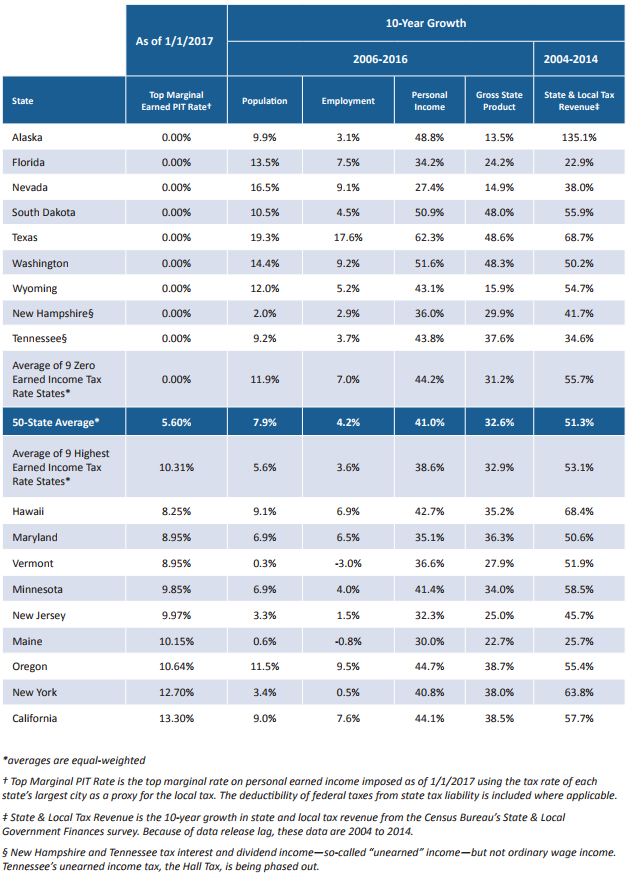
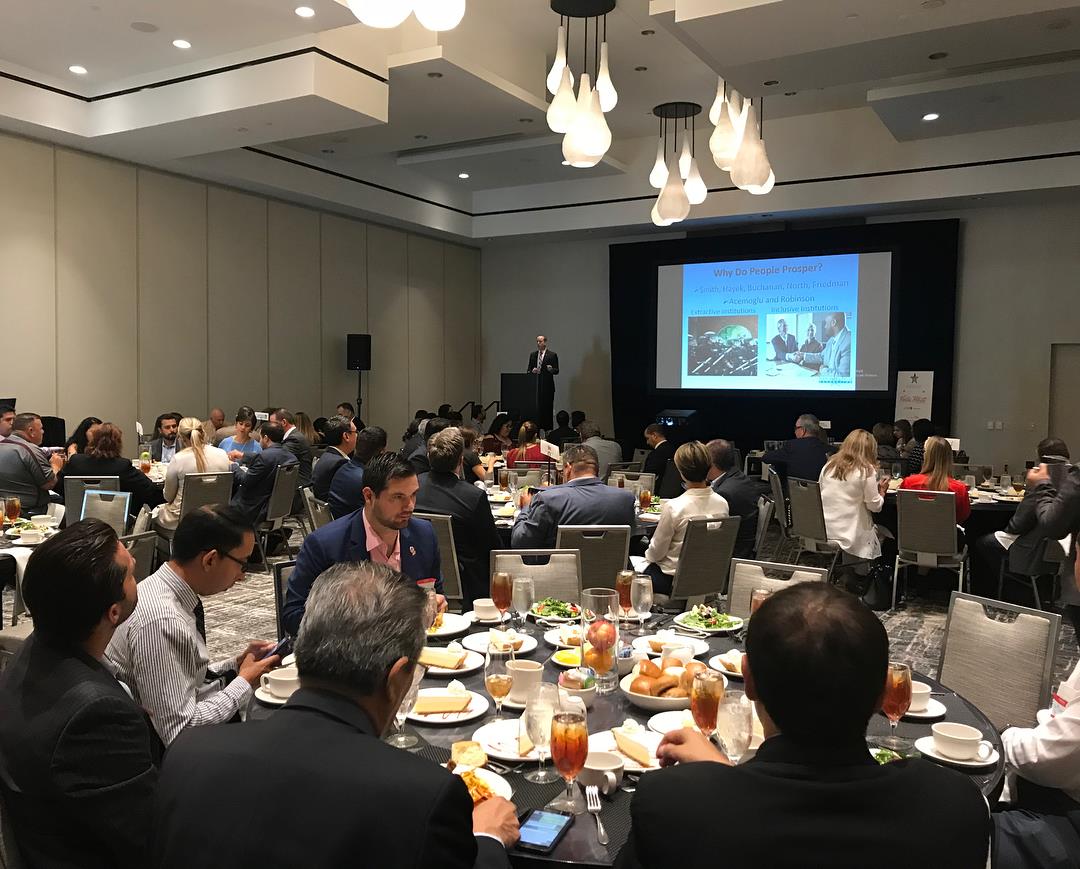
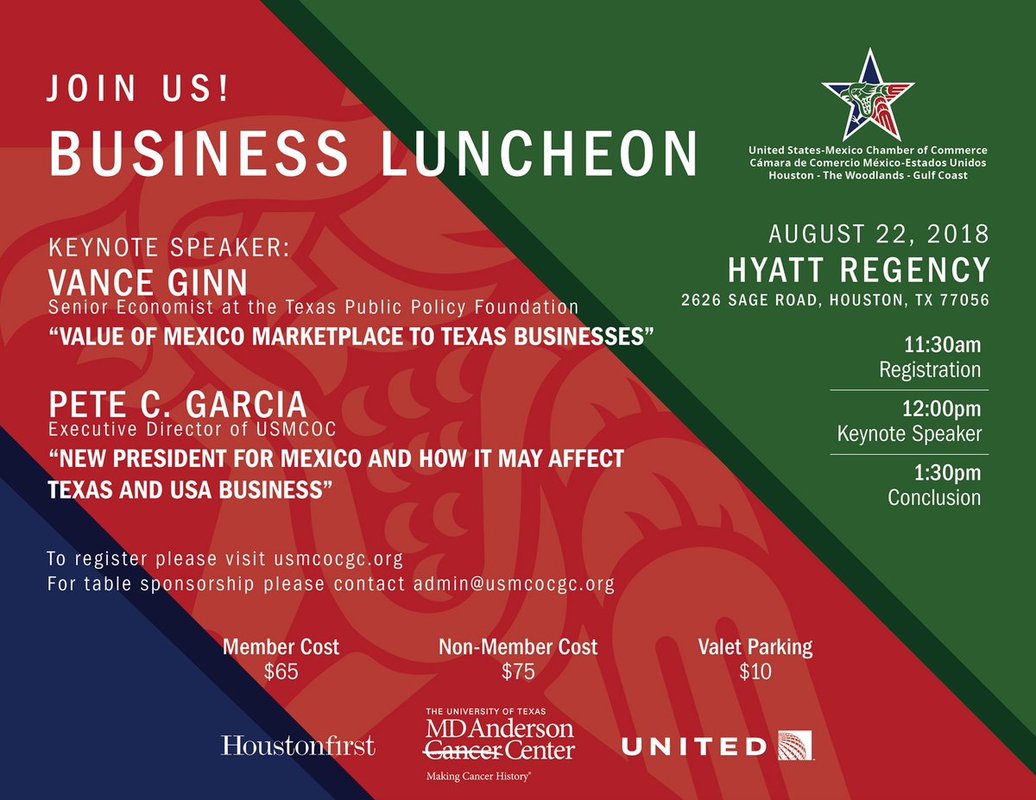


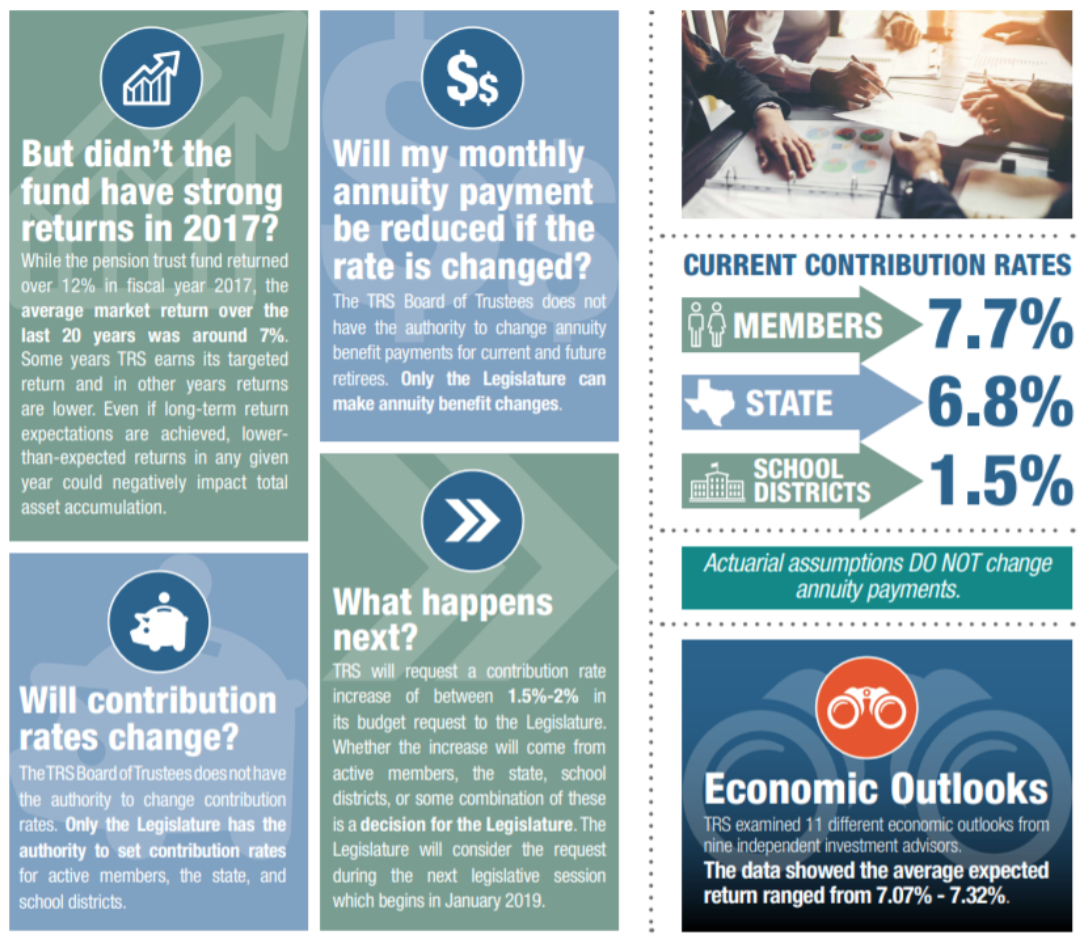
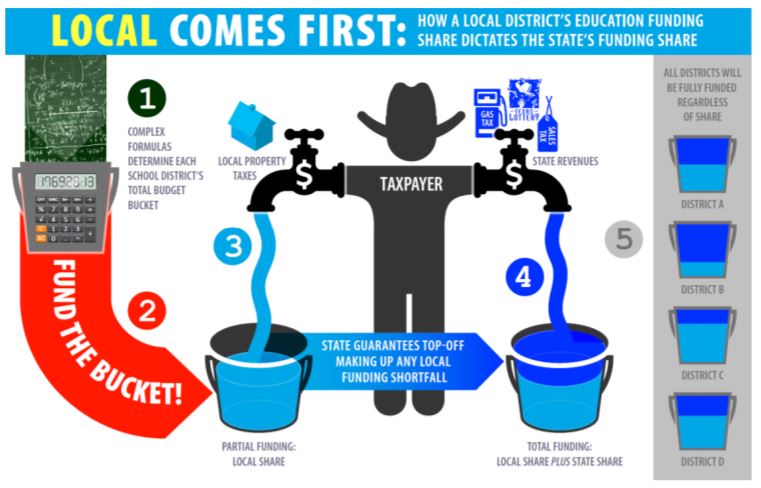
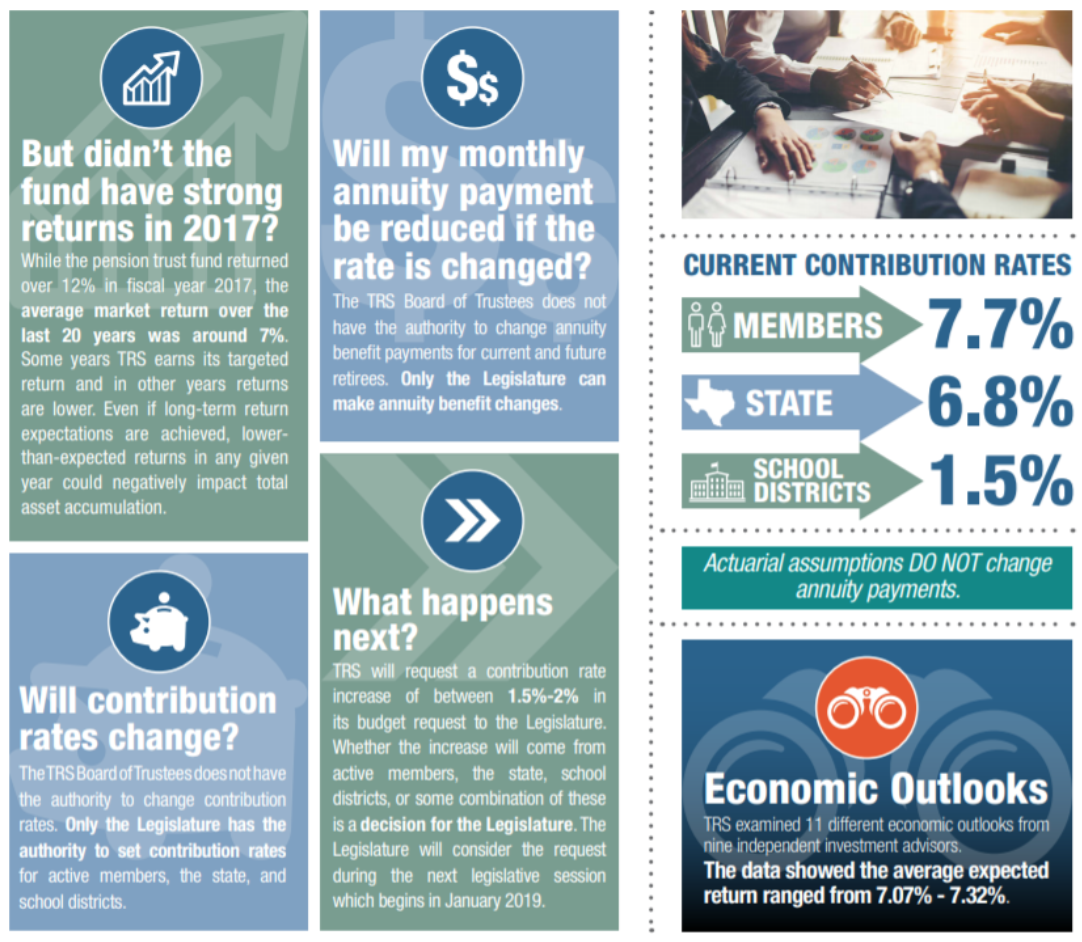
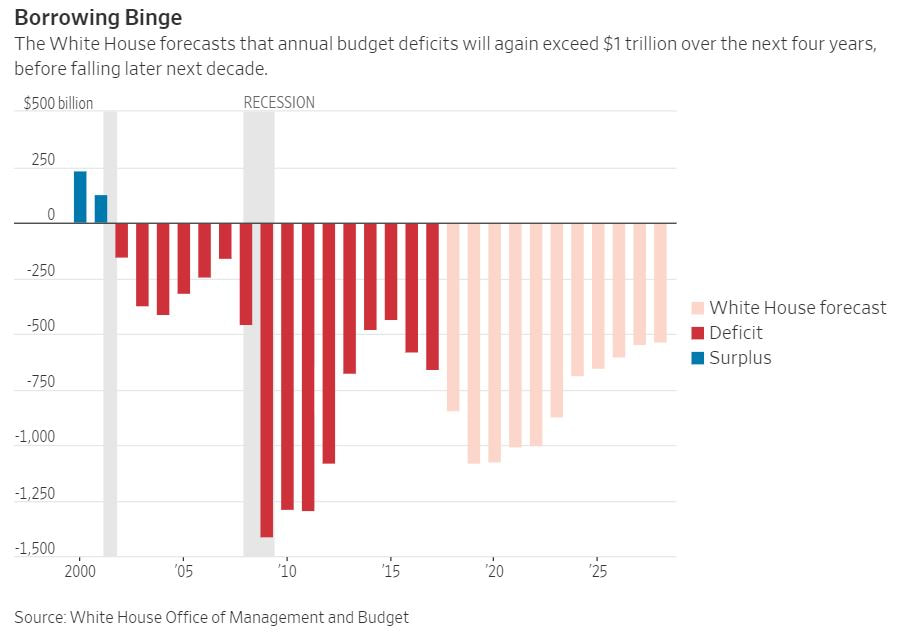


 RSS Feed
RSS Feed